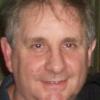http://www.sfgate.co...for-5783521.php?
Calico exec: Find cause before cure for age-related disorders
A top executive at Google’s antiaging biotechnology company said this week that scientists must
identify and understand the underlying biology of age-related diseases like Alzheimer’s before
finding a cure.
A year after Google formed Calico in South San Francisco, Dr. Hal Barron, the company’s
president of research and development and a former high-ranking executive at Roche and
Genentech, made a rare appearance on a panel at a Palo Alto conference about antiaging research
on Thursday.
Speaking to a group of scientists, life science executives and investors, Barron said researchers
must focus on the cellular and molecular mechanisms of a disease before developing possible
treatments, a hint at Calico’s overall approach to fighting age-related disorders. The company has
so far revealed little about its plans.
While doctors have traditionally focused on treating symptoms, “it behooves us to really spend a
lot of time trying to understand the biology of human disease,” said the clinician-scientist, who left
his position as chief medical officer and head of global product development of Roche to join
Calico under the leadership of former Genentech CEO Arthur Levinson.
Aging is the result of not one cause but rather an interlocking series of factors, Barron said. So
scientists must design strategies to reflect that complexity, he said.
In the United States, cases of Alzheimer’s alone are expected to nearly triple by 2050, to about 14
million from 5 million. Several biopharmaceutical companies have seen promising treatments for
neurodegenerative conditions flop in recent late-stage clinical trials.
“It seems unlikely that Alzheimer’s is really one disease, one path or physiological process,” Barron
said. “It’s possible, but there may be five or six or 10 different ways people can have that end game.
And if they want us to develop a drug for that and treat them all the same, you can do a model, but
the trial will be negative.”
The panel was held at Merck Research Labs and hosted by Johnson & Johnson Innovation,
Janssen Labs and Nature Publishing Group, which publishes academic journals in science
and medicine.
Under an exclusive worldwide license announced this month, Calico plans to develop and license
compounds that have been shown to ward off memory loss in animal models of Alzheimer’s.
The compounds, developed by University of Texas Southwestern Medical Center researchers, have
also demonstrated potential in animal studies for Parkinson’s disease, ALS and depression. The
most recent studies suggest the compounds help activate a cellular process that is critical to a cell’s
functions and survival and also protect against brain dysfunction in rodents with
traumatic injuries.
Calico has said it will fund labs in Dallas to perform the research. This month it also entered a
potential $1.5 billion deal with pharmaceutical giant AbbVie to build a Bay Area research facility
where scientists will try to develop therapies.
Scientists already know certain biological factors can determine how quickly a person ages, Barron
said. For example, people with a high blood glucose level after fasting tend to age faster. The same
goes for people who, while exercising at maximum capacity, consume less oxygen than the
average person.
“There’s a lot of different things that we could measure, we could know today about people who are
probably aging faster, but to try to understand the biology behind that is actually the hard part,”Barron said.
An audience member asked Barron if he knew of “any molecules, small or large, that would be
suitable for pharmaceutical development” in aging — akin to how Genentech made its legacy in
biotech history by cloning human insulin and growth hormone in the 1970s and ’80s.
Unfortunately, Barron said, there is no magic bullet for treating age-related diseases.
“It’s not like the heyday of biotech, when there was all of a sudden a brand-new technology that
unleashed a massive unmet need that was being replaced or being met,” Barron said.
























































